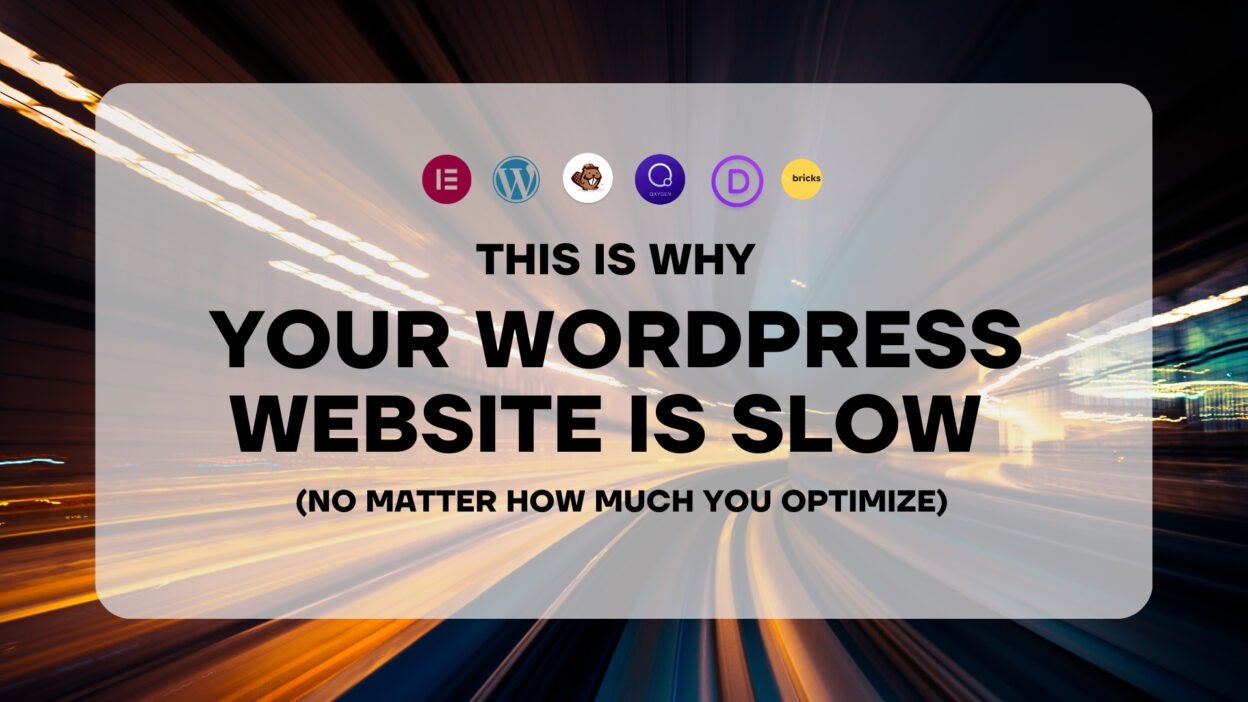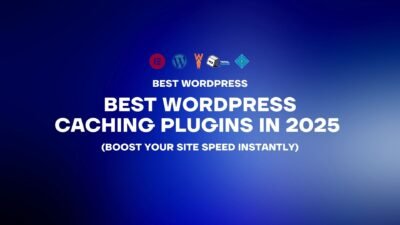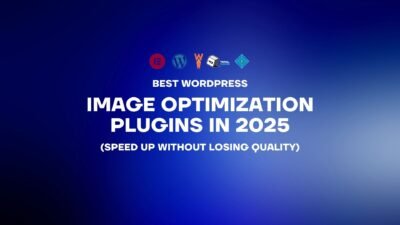You’ve optimized images, installed WP Rocket, enabled caching, and still—your WordPress site isn’t as fast as you’d like. Sound familiar? The truth is, caching plugins alone won’t fix everything. Several factors impact your website’s speed, even if you follow all the optimization tricks.
In this guide, we’ll break down why your WordPress website is slow, why it can’t match the speed of a custom-built site, and how you can achieve lightning-fast performance despite WordPress’s limitations.
1. Your Hosting Plan Isn’t Powerful Enough
Most people choose hosting plans based on storage space, but that’s NOT what determines speed. What really matters:
- CPU power – The more CPU cores, the better your site can handle requests.
- RAM – More RAM helps process multiple users at once without slowing down.
- Server response time (TTFB) – A fast server responds in under 200ms.
- NVMe SSD storage – Faster than traditional SSDs.
👉 Solution: Choose hosting with powerful CPUs, NVMe SSDs, and low server response times. Hostinger’s premium plans offer a great balance of price and performance.
2. Shared Hosting Bottlenecks
If you’re on shared hosting, you’re competing for resources with hundreds of other websites on the same server. Even with optimization, your site will slow down if others are consuming too many resources.
👉 Solution: Upgrade to a Cloud or VPS hosting plan where you get dedicated resources.
3. Too Many HTTP Requests
Every time your site loads, the browser requests multiple files (CSS, JavaScript, images, fonts, etc.). The more requests, the slower the site.
👉 Solution: ✅ Minify & combine CSS/JS files with Autoptimize or WP Rocket. ✅ Use a Content Delivery Network (CDN) to serve assets faster. ✅ Limit third-party scripts (Google Fonts, external widgets, etc.).
4. Too Many Plugins Installed
Each plugin adds extra scripts, stylesheets, and database queries. Some plugins run unnecessary background tasks, slowing everything down.
👉 Solution: ✅ Keep only essential plugins. ✅ Replace multiple plugins with all-in-one solutions like WP Rocket. ✅ Disable unnecessary features in Elementor.
5. Bloated Themes with Unused Features
Many WordPress themes come with tons of features you don’t need—animations, sliders, mega menus—all of which slow down your site.
👉 Solution: ✅ Use a lightweight theme like Hello Elementor, Astra, or GeneratePress. ✅ Disable unnecessary theme features.
6. Unoptimized Database
Your WordPress database stores posts, pages, comments, and plugin data. Over time, it gets bloated with autodrafts, revisions, and transient cache, slowing down queries.
👉 Solution: Use WP-Optimize or Perfmatters to clean up the database.
7. WordPress Can’t Match Custom-Built Website Speed
WordPress is built on PHP and MySQL, adding overhead that a static or custom-coded website doesn’t have.
Why a custom-built website is faster:
- No reliance on PHP processing.
- Minimal database queries.
- No unnecessary theme or plugin bloat.
How to match a custom website’s speed: ✅ Use server-side caching (Redis or Varnish). ✅ Optimize WordPress to load only essential files. ✅ Consider headless WordPress (using WordPress as a backend and a static frontend like Next.js).
Final Thoughts: The Perfect Hosting Plan for Your Site
If you want real speed, pick a hosting plan based on CPU, RAM, and server response time, NOT storage space. Hostinger’s optimized hosting plans provide a great balance of affordability and speed.
🔹 Need help to optimize your WordPress Website to load within a second? Contact us now!





